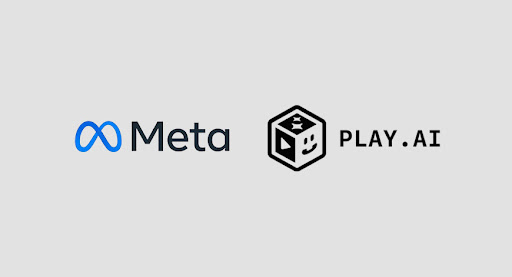Meta Platforms recently finalized the acquisition of PlayAI, a voice-focused artificial intelligence startup, marking another bold move in the company’s aggressive AI expansion strategy. By securing PlayAI’s expertise in creating near-human voice synthesis, Meta aims to fast-track development across its AI Characters, Meta AI assistant, wearables, and immersive audio experiences. This Meta acquires PlayAI voice deal underscores the growing importance of natural, expressive speech in modern AI interfaces. Here’s a comprehensive breakdown.
Why Meta Acquires PlayAI Voice Talent
Meta’s memo indicates PlayAI developed highly natural, lifelike voices via a user-friendly platform—an excellent fit for Meta’s roadmap spanning AI Characters, wearables, and content creation. The acquisition reflects a broader trend: major tech firms are buying startups not just for their technology, but for their specialized talent in voice AI. The entire PlayAI team will report to Johan Schalkwyk, recently recruited from Sesame AI client and former Google voice researcher.
Chief Executive Mark Zuckerberg has publicly prioritized AI this year, doubling down on infrastructure, chips, and data center investments. The Meta acquires PlayAI voice move aligns with the earlier $14 billion investment in Scale AI to build Meta Superintelligence Labs.
Enhancing Product Capabilities With PlayAI Tech
Improving Meta AI and Interactive Audio
PlayAI’s low-latency, multilingual, expressive speech synthesis can power the Meta AI assistant across Facebook, Instagram, Messenger, and WhatsApp. Users could interact with AI Conversational Agents that sound highly realistic—boosting engagement and immersion.
Supporting Wearables and AI Characters
Voice is essential for wearable devices like Ray-Ban smart glasses and for avatar-based AI characters. By integrating PlayAI, Meta can deliver improved voice experiences that adapt to real-time conversations, emotional nuance, and language variety.
Boosting Content Creation Tools
Creators on platforms such as Instagram Reels stand to benefit from advanced voice cloning and dubbing features. PlayAI’s tools enable high-quality voiceover in multiple languages, offering new capabilities for user-generated content.
The Talent Acquisition Strategy
“Buy or Poach” Model
The acquisition represents the latest instance of Meta’s “buy or poach” strategy, where small startups are integrated primarily for their teams. PlayAI, a Y Combinator alum, raised $21 million for its flagship PlayDialog model, which delivers natural, contextual voice synthesis across 40+ languages.
Meta’s internal memo highlighted a perfect alignment between PlayAI’s capabilities and Meta’s AI trajectory. By scaling PlayAI’s team into Meta Superintelligence Labs, the company consolidates core talent under Alexandr Wang, CEO of Scale AI and head of Meta’s next-gen AI labs.
Competition in Voice AI Talent
The deal comes amid intense competition: Meta has lured employees from rivals like OpenAI, Google’s Gemini, Microsoft, and Apple using nine-figure incentives. Once acquired, PlayAI engineers are set to lead major voice AI initiatives.
Market Implications of Meta Acquires PlayAI Voice
Strategic Leap in Conversational AI
As voice becomes a dominant interface—from VR to voice assistants—Meta needs leading technology to stay relevant. PlayAI adds speech cloning, real-time generation, and expressive intonation—crucial for interactive, emotionally nuanced AI.
Pressure on Rivals
With PlayAI in its arsenal, Meta challenges Google, Amazon, and OpenAI in the voice domain. Expect competition to escalate, especially in AI platforms powering user devices, chatbots, and XR experiences.
Ethical and Regulatory Focus
Advanced voice-cloning tech raises privacy and consent concerns. Incidents of voice fraud have surged 350 percent, prompting tighter regulations, particularly around digital voice identity. Meta must now address legal frameworks and build trust.
Challenges Ahead
- Integration Complexity: Combining PlayAI’s systems with Meta’s massive infrastructure presents engineering and organizational hurdles.
- Ethics and Regulation: Voice cloning opens abuse risks, requiring internal guardrails and compliance with data protection norms.
- Talent Retention: Securing the PlayAI team long term amid ongoing poaching by other AI giants.
- ROI Uncertainty: The cost (reported at ~$45 million) for voice tech must deliver concrete benefits across diverse products.
What Comes Next for Meta
- Seamless Integration: Verify PlayAI tech within Meta AI, wearables, and avatar ecosystems.
- Ethical Voice Policies: Establish user consent systems, transparency notices, and misuse prevention.
- Feature Rollouts: Launch lifelike voice features across social apps and wearable devices.
- Platform Expansion: Open voice APIs to developers for new experiences in healthcare, customer service, and immersive environments.
- Ongoing Talent Investments: Expect continued acquisitions and hiring sprees to sustain AI momentum.
Conclusion
The Meta acquires PlayAI voice acquisition marks a turning point. It strengthens Meta’s AI strategy by adding leading-edge voice technology and a top-tier talent team. This investment positions Meta to deliver conversational AI experiences that feel more natural, multilingual, and emotionally aware. As voice interfaces gain traction—from smart glasses to AI avatars—this move could significantly reshape how users experience digital interaction. Meta’s success will depend on ethical deployment, seamless integration, and regulatory alignment. But for now, PlayAI integration is a major leap toward immersive, voice-first AI at scale.
Read More






 Monday, 09-02-26
Monday, 09-02-26







